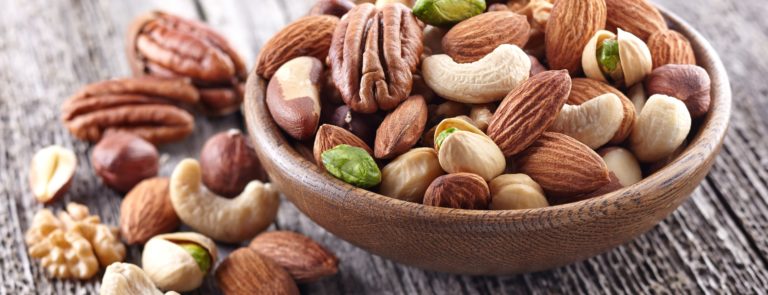15% off €35 OR 20% off €45
Code:BASKET
How to support your nutritional needs as a smoker

You’ll know how harmful smoking is to your health, and hopefully you’ve looked into the many options available which are designed to help you quit. In the meantime, it’s useful to know that as a smoker, your body has different nutritional requirements to those of a non-smoker.
You’ll know how harmful smoking is to your health, and hopefully you’ve looked into the many options available which are designed to help you quit. In the meantime, it’s useful to know that as a smoker, your body has different nutritional requirements to those of a non-smoker.
Has food lost it's taste?
Cigarette smoking can have a negative effect on your sense of taste, causing you to become less able to pick up subtle flavours. This is because smoking actually alters the physical surface of your tongue, and according to one study decreases our count of fungiform papillae, which are the tiny bumps on your tongue which contain the taste buds.1 A French study published in 2014 found that smoking has a particularly detrimental effect on your ability to detect bitter tastes, and in some cases that the problem also persisted after the smoker had given up.2 If you have duller taste buds it’s likely that you won’t seek out a variety of different foods, which is the key to a balanced and healthy diet. Not being able to enjoy the subtle tastes of different vegetables, herbs and spices could lead to choosing a less healthy, blander diet. You might find yourself less able to enjoy such strong, bitter flavours as coffee, ginger, dark leafy greens and citrus fruits. The only way to tackle this is to quit smoking as soon as possible - and ensure that you’re eating a wide variety of fresh foods in your diet even if their taste and palatability isn’t as strong. Handpicked content:Why smokers need more magnesiumYou’ll need more antioxidants
Antioxidants are your best weapon against damage from oxidative reactions. These oxidative reactions produce free radicals which cause damage to your cells, leading to various diseases and cell ageing. Oxidative reactions can’t be completely avoided, as they take place as a natural by-product of energy production in your body as well as from exposure to harmful external substances like pollution and cigarette smoke. However, you can equip your body to fight free radicals by taking in extra antioxidants. Antioxidants are molecules which help prevent the harm caused by free radicals. As a smoker, you’ll need more antioxidants as smoking seriously increases the generation of free radicals.Vitamin C
Smoking has shown to decrease the level of vitamin C in the blood and decrease its effectiveness as an antioxidant. It’s widely recommended by health researchers and scientists that smokers need to up their intake of vitamin C as a result.3,4,5 The best way to do this is to increase the amount of fruit and vegetables in the diet particularly peppers, leafy green vegetables such as broccoli and spinach, and citrus fruits.Vitamin E
Vitamin E is another antioxidant which smokers need more of yet stores of it are negatively affected by smoking. Levels of this nutrient is reduced by 13% in smokers compared to non-smokers according to a US study.6 This is very bad news as vitamin E offers excellent protection against free radicals such as those produced by cigarette smoke. Eat nuts, seeds, avocado and dark leafy greens to get more vitamin E.Vitamin D
Smoking may lower the immune response, so it may be wise to increase vitamin D intake as a smoker to ensure normal functioning of the immune system. Vitamin D works in many different ways to keep your body healthy. It’s key for maintaining strong bones, teeth and muscles, but studies have also shown it’s also vital for keeping the immune system strong by activating your T-cells. T-cells are the agents which recognise allergens and threats to your immune system, thus triggering your immune response. Low levels of vitamin D prevent the T-cells from activating, thus lowering the immune response.7 Most of your vitamin D will come from the sunshine, although small amounts can be found in fish and dairy products. Official health guidelines from Public Health England(PHE) advise taking 10mcg of vitamin D supplements daily in the autumn and winter, and as a smoker you’re at risk of having low vitamin D levels, so consider take supplements all year round.8 Handpicked content: How to get the most nutrients from your foodBeware of saturated fat
Long-term smoking causes a state of chronic inflammation in the body, which leaves smokers more vulnerable to infection and disease.9 For this reason, smokers need to be especially mindful of the inflammatory effects of saturated fat in their diet, as this is also proven to promote inflammation.10 Avoid fried foods, pastry, red meat, cakes, biscuits and chocolate, and use olive oil instead of butter.And finally…
Please bear in mind that while it’s always a great idea to support your specific health requirements, there isn’t a way to offset the damage done by long-term smoking and giving up sooner rather than later is the best thing you can do for your health. There are lots of options available to you and help and support along the way, so there’s never been a better time to start putting your health first. Handpicked content: Here’s how you can quit smoking and start to feel the benefitsAdvice is for information only and should not replace medical care. Please consult a doctor or healthcare professional before trying any remedies.
Shop our Vitamins & Supplements range.Sources
- https://www.ncbi.nlm.nih.gov/pmc/articles/PMC4948516/.
- https://pubag.nal.usda.gov/catalog/1211204.
- https://www.sun.ac.za/english/faculty/healthsciences/nicus/Documents/Files/Files/Fact_sheets/Vit%20C%20and%20Smoking.pdf.
- http://www.altmedrev.com/archive/publications/8/1/43.pdf.
- https://www.ncbi.nlm.nih.gov/pubmed/1784736.
- https://academic.oup.com/ajcn/article/81/1/95/4607687.
- https://www.ncbi.nlm.nih.gov/pubmed/10679076/.
- https://www.nhs.uk/news/food-and-diet/the-new-guidelines-on-vitamin-d-what-you-need-to-know/.
- https://www.ncbi.nlm.nih.gov/pmc/articles/PMC3261116/.
- https://www.ncbi.nlm.nih.gov/pmc/articles/PMC4424767/.





